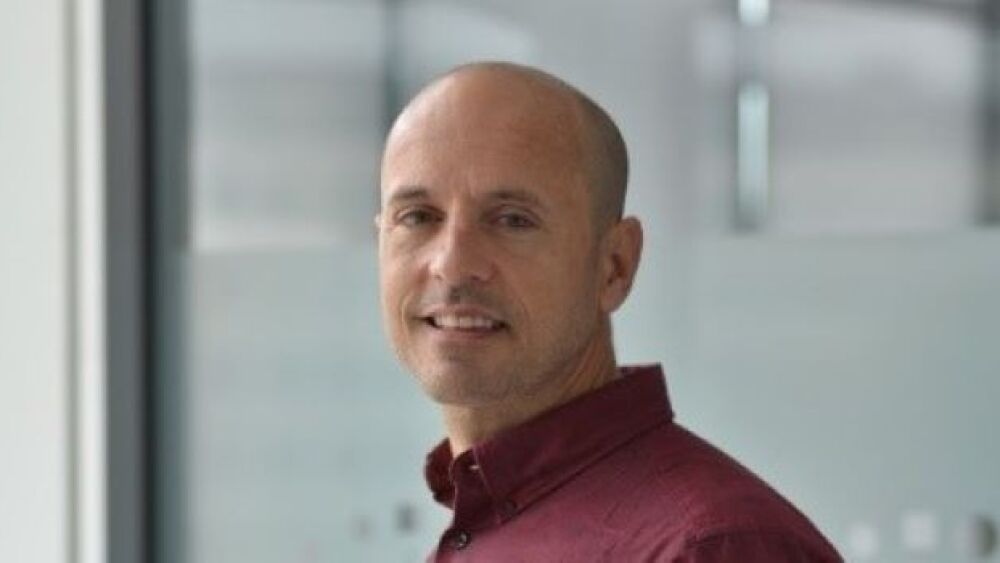Immunotherapies are about to get safer, more effective, and even more accessible with the new biotech’s novel approach.
Co-founder and CEO Andy Scharenberg. Photo courtesy of Umoja Biopharma.
Umoja Biopharma is blazing a new trail for the immunotherapy approach by providing scalable, more effective, more accessible CAR T-cell treatments. With a $53 million launch today, the company’s team is coming together to deliver something incredible.
Like many biotechs right now, Umoja is focused on immunotherapies. But unlike their competitors, Umoja’s approach to T-cell engineering is completely unique. It will re-engineer a patient’s own immune system in vivo to attack and destroy hematologic and solid organ-based tumors.
Current T-cell immunotherapy methods on the market remove cells from patients, modify them in the lab and return them to the patient to get to work fighting its target. Umoja’s technique is revolutionary in that it delivers the genetic payloads to T-cells directly in the patient, allowing those cells to expand in a more natural, immune response-like manner. This not only removes the need for conditioning, it also avoids the dangers that can occur when engineered T-cells are rapidly multiplied in the body. The revolutionary approach generates durable target-specific responses. It also shows promise for widespread implementation thanks to its simplicity and lower cost.
“Umoja comes from the Swahili word for unity – one of the company’s core values – that reinforces its focus on bringing separate components together to create a powerful result, whether that is in the people who make up the company or the platform technologies that make up our therapeutic process,” co-founder and CEO Andy Scharenberg, M.D. told BioSpace.
Umoja’s platform is comprised of three core technologies:
- The VivoVec delivery platform acts in vivo to generate cancer fighting cells (VivoCAR T Cells).
- The RACR/CAR is the control system that uses FDA approved drugs to drive the cells.
- The Tumor Tag molecules to direct the killer T cells to the tumor and any cell that supports the tumor.
“Umoja has already made significant progress on its goal of delivering technologies that will address the limitations of current engineered immunotherapies,” Scharenberg said. “Our in vivo-based approach is scalable while also providing control, safety and highly effective anti-tumor activity; our goal is to improve both access and outcomes.”
The initial focus for Umoja will be on two lead candidates: VivoVec UB-VV100 for hematological cancers and TumorTag UB-TT170 in pediatric osteosarcoma.
Umoja will partner with co-founder Dr. Michael Jensen’s lab at Seattle Children’s Therapeutics to initiate a Phase I clinical trial in mid 2021 for UB-Tt170. UB-VV100 has a target date of early 2022 for IND submission.
Umoja is based on the trailblazing work in the laboratory of Philip Low at Purdue University. Its Series A launch is supported by MPM Capital and DCVC Bio and its scientific founders from Seattle Children’s Research Institute and Purdue University. Umoja’s founding scientists, Dr. Scharenberg, Dr. Jensen and Dr. Low, are all experienced scientist-entrepreneurs who have demonstrated significant value creation in past commercial/industrial endeavors.
“This represents an important step forward in delivering on a shared vision to develop transformational therapies for patients who need them, including the most vulnerable population affected by debilitating diseases – children,” said Michael Jensen, M.D., co-founder, Umoja Biopharma, vice president, Seattle Children’s Therapeutics and chief therapeutics officer, Seattle Children’s. “We now have the opportunity to combine forces and move at light speed, eclipsing what could have been accomplished singularly or in a normal academic manner.”






